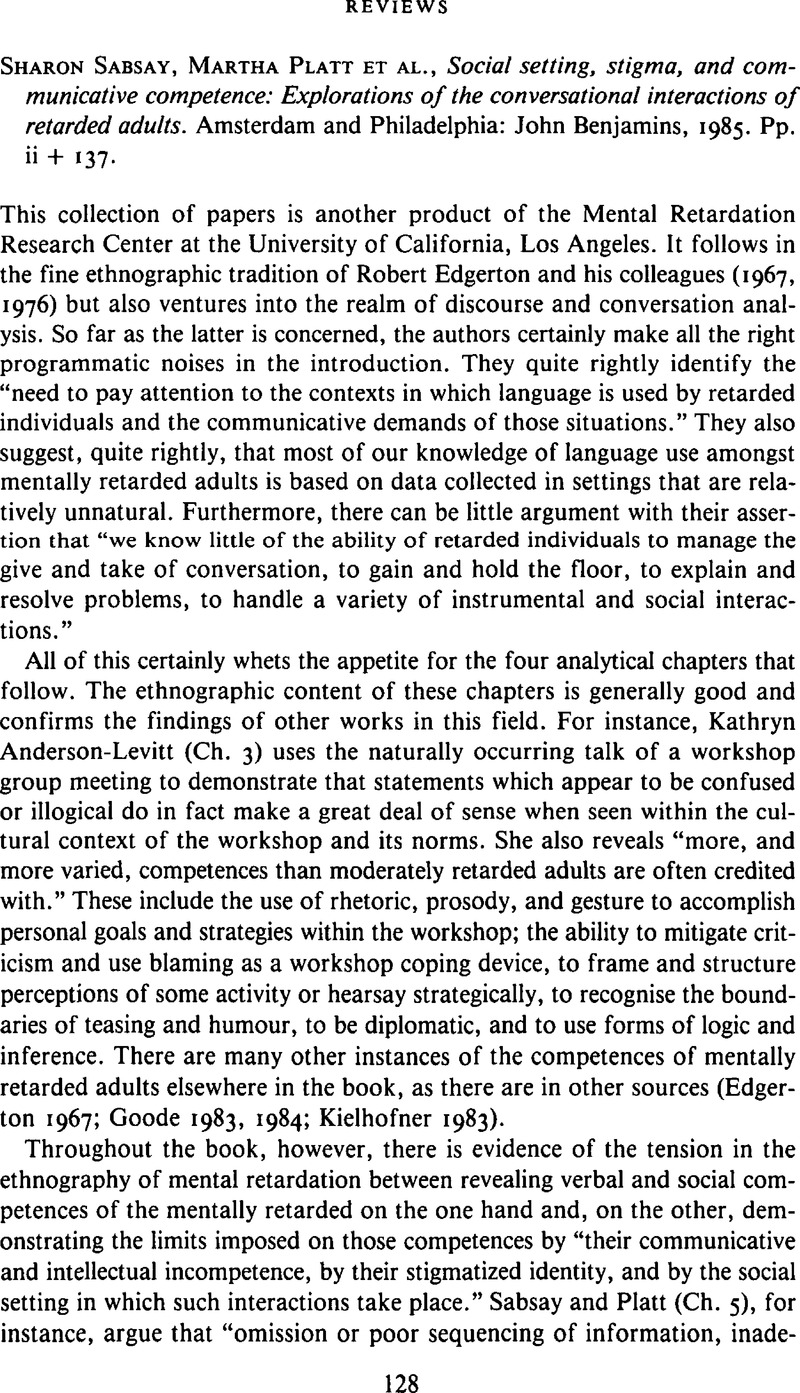No CrossRef data available.
Article contents
Sharon Sabsay, Martha Platt , Social setting, stigma, and communicative competence: Explorations of the conversational interactions of retarded adults. Amsterdam and Philadelphia: John Benjamins, 1985. Pp. ii + 137.
Published online by Cambridge University Press: 18 December 2008
Abstract
An abstract is not available for this content so a preview has been provided. Please use the Get access link above for information on how to access this content.

- Type
- Book Review
- Information
- Copyright
- Copyright © Cambridge University Press 1989
References
REFERENCES
Edgerton, R. B. (1967). The cloak of competence: Stigma in the lives of the mentally retarded. Berkeley: University of California Press.Google Scholar
Edgerton, R. B., & Bercovici, S. M. (1976). The cloak of competence: Years later. American Journal of Mental Deficiency 80(5):485–97.Google ScholarPubMed
Goode, D. (1983). Who is Bobby? Ideology and method in the discovery of a Down's syndrome person's competence. In Kielhofner, G. (ed.), Health through occupation: Theory and practice in occupational therapy. Philadelphia: F. A. Davis.Google Scholar
Goode, D. (1984). Socially produced identities, intimacy, and the problem of competence among the retarded. In Tomlinson, S. & Barton, L. (eds.), Special education and social interests. London: Croom Helm.Google Scholar
Hymes, D. (1972). Models of the interaction of language and social life. In Gumperz, J. J. & Hymes, D. (eds.), Directions in sociolinguistics: The ethnography of communication. New York: Holt, Rinehart and Winston. 35–71.Google Scholar
Kielhofner, G. (1983). Rose coloured lenses for clinical practice: From a deficit to a competency model in assessment and intervention. In Kielhofner, G. (ed.), Health through occupation: Theory and practice in occupational therapy. Philadelphia: F. A. Davis.Google Scholar
Labov, W., & Fanshel, D. (1977). Therapeutic discourse: Psychotherapy as conversation. New York: Academic.Google Scholar
Sacks, H., Schegloff, E. A., & Jefferson, G. (1974). A simplest systematics for the organisation of turn-taking for conversation. Language 50(4):696–735.CrossRefGoogle Scholar


